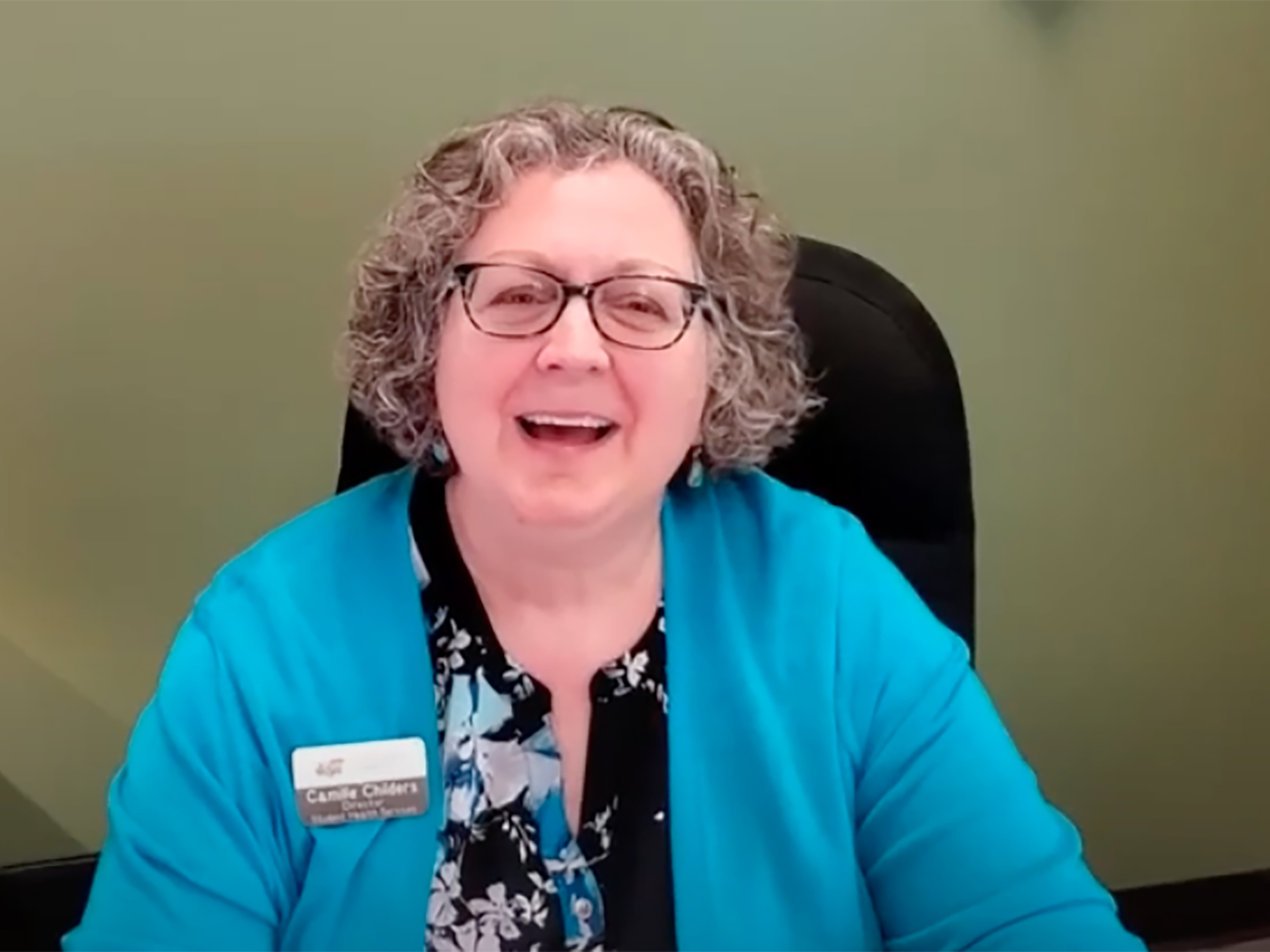Camille Childers never thought she’d be leading the charge in Wichita State University’s battle against a pandemic. Nevertheless, she had a plan.
“I don't think anyone ever really thinks that they're going to do that. Part of my role as the director for student services is to chair that health risk assessment team, and we are the keepers of the pandemic planning team,” said Childers, director of Student Health Services at Wichita State. “You plan for these things, but you hope it never happens. This has definitely been a learning experience.”
Childers said the university has had plans for health emergencies since she started in her current role in 2012, but Wichita State has never come close to needing to use it. There have been a couple of tuberculosis cases and a few folks with measles who needed to be isolated, but nothing to the extent of the COVID-19 crisis.
Director of Student Health Services
“The Ebola situation in 2014 was probably the closest thing to what we had to deal with as far as a global impact of a health condition, but then COVID has blown everything out of the water,” she said. “There's always been a plan. There’s always been a framework of what we would do to respond.”
Even with a pandemic plan in place, the university needed to be deft enough to make modifications along the way.
“I could go back through my notes of meetings that occurred in February and what we talked about then to where we are now, and they’re two different things,” she said. “As the disease progressed, we were nimble enough to change and to fluctuate on what we needed to do. You have to be able to upgrade and have the ability to change quickly, and I think we've done that. The support from the university has been great. As always, WSU has focused on what we can do to take care of our students.”
As Wichita State marches forward with a plan for reintegration and coexisting with COVID-19, Childers remains on the front line.
“I think reintegration needs to be talked about before it happens, so I'm very glad to have these conversations going on,” she said. “You want to have these conversations before you need to make it happen. Part of pandemic planning and any kind of emergency response is a recovery phase, but before you get to the recovery, you have to figure out what this is going to look like.”
Once the university and the world have solved the COVID crisis, Childers said, there will be an opportunity for reflection.
“One of my goals once we get on the other side of this is to go back to our pandemic plan now that we've actually had experience to really reflect on what we've gone through,” she said. “Part of any sentinel event is to go back and do a hot wash or debrief to figure out what we did right, what we need to work on for improvement and what are opportunities for learning.”
Even if we have a vaccine or an effective treatment, Childers believes COVID-19 has changed our world.
“It breaks my heart to see how fast the impact has been not only on people, but the economies and just the world as a whole. I do think it's going to change us. How could you go through this and it not change us?” she asked. “Maybe we need to be a little more conscious of what's going on in other countries and what impact it has on us. We're not alone here. If nothing else, this gives us some a more global view of what's going on in the world.”
But there are some silver linings: “It also has given us an opportunity to really reconnect with maybe what's more important in life” Childers said. “A lot of people have had a lot of time to spend with their families or maybe been separated from their families or friends. Maybe this helps us recognize those things that we often take for granted.”
Childers said she cannot take all the credit for the university’s response.
“I think one of the most important things to remember is that this is a public health crisis. It is a pandemic that effects everyone, and I certainly am not doing this alone,” she said. “We have a wonderful team of people who have been working on all aspects of this as well. This is not a one-person job. This is a team, and WSU has done a phenomenal job in having a good team to make this happen.”


 Courtesy
Courtesy